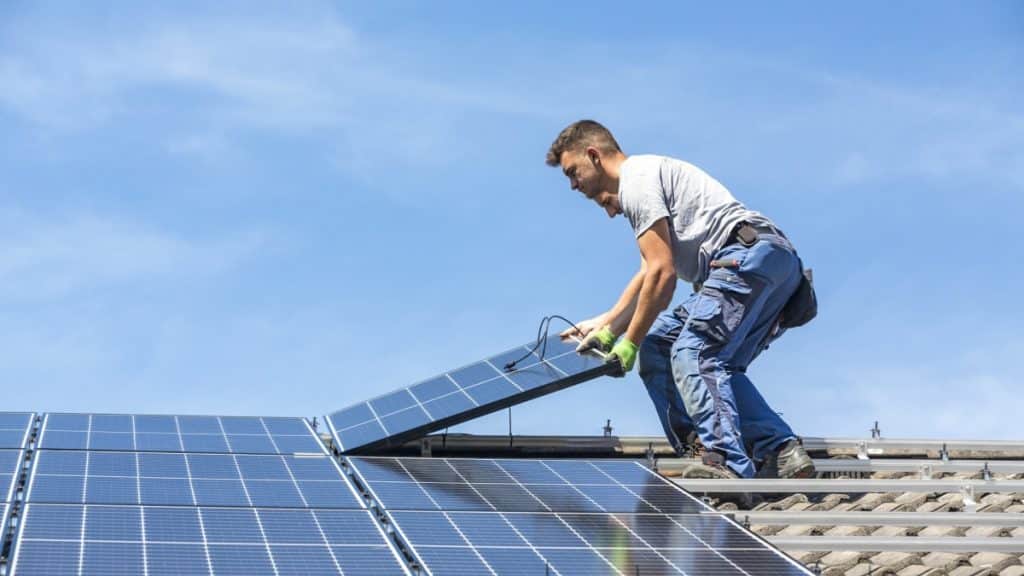If you are looking for a way to be more environmentally friendly and socially conscious, then you might be considering a new solar system for your home. There are plenty of financial reasons to install solar panels. It can bring down your electric bill, it can be an excellent return on investment and it can improve the salability of your home.
Here are nine factors to consider when installing solar panels to get the most out of your time and money.
Scope of Project
Are you looking to power all of your energy needs for your entire home with solar panels, or are you just looking to add a few panels? You’ll want to know several things before you decide the scope of your project. Answers to these questions will help you determine how to decide:
· How much energy does my home use?
· How reliable is solar power where I live?
· Can I improve the efficiency of my home?
Cost Range
The average solar panel system costs $18,500 but the cost range to install a solar panel system will be determined by the scope of your project. Typically, these costs range between $9,000 and $28,000.
Solar costs are going down, however. In fact, the International Energy Agency reported that solar electricity is now the cheapest electricity in history and costs have fallen 85% in the previous decade. So, while the initial cost might seem high, it’s still the best deal there is.
How Long are you going to Live in your House?
Since the return on your solar panel investment is a minimum of 5 years and can be up to 15 years, you should definitely factor in how long you are planning on staying in your home. If you are selling before that 5 year mark, could you still see a return on your investment? It’s possible, but you need to do some calculations to make sure.
Roof Type and Condition
Roof replacements need to happen from time to time, but how often depends on the type of roof that you have. If you have a slate, copper or tile roof, it can have a lifespan of up to 50 years. Some types of roofing need to be replaced every 20-25 years.
Determine how long it has been since your roof was installed and use that to gauge whether or not it would be cost-prohibitive to install a solar panel system on it. It would be an extremely costly mistake to put a $20,000 solar panel system on a roof that needs replaced before you ever see any benefit from it.
Also, if your roof has a warranty, check to make sure that it won’t be affected by a solar system installation. Other factors to consider regarding your roof include its shape, how much it can hold, what direction it faces and where gutters are directing rain water.
Geographic Location
Your geographic location is going to determine how much sunlight you get and how many solar panels will you need. It can even mean that you will experience some days out of the year when you need a backup power source.
Net Metering
Net metering is a great way to efficiently use solar power because you can sell your surplus power back to the grid. And you have a built-in backup power source.
Since not every state allows net metering, be sure to check with your state. Some states allow net metering, but most states require it.
Project Length
Installing solar systems can be an intensive process, especially if you are installing a solar panel system that provides energy for your entire home. Make sure that you plan ahead for unexpected problems.
Permits
Depending on where you live, you might need to apply for building permits to add a solar panel system to your home. Sometimes, building permits take a considerable amount of time, so be sure to factor this into your planning and cost/benefit analysis.
Choose the right company
As solar power becomes more popular, more and more companies are installing solar panel systems. Some of these installers come from very diverse backgrounds and you want to make sure you are going to have a quality installation. How do you know which one to choose? Here are 5 things you should do:
1. Get multiple quotes.
2. Make sure they are licensed and bonded.
3. Find out if they are certified by the North American Board of Certified Energy Practitioners (NABCEP).
4. Investigate their reputation.
5. Make sure they offer warranties on their work.
Solar panel systems are worth the investment, but they can cost a lot of money. You’ll be able to rest at ease with a quality contractor.
Take the Next Steps
Once you have decided to add a solar panel system to your home and you have taken these factors into consideration, it’s time to take the next steps. Find the contractor that is right for you and get ready to reap the benefits of a professionally installed system.
